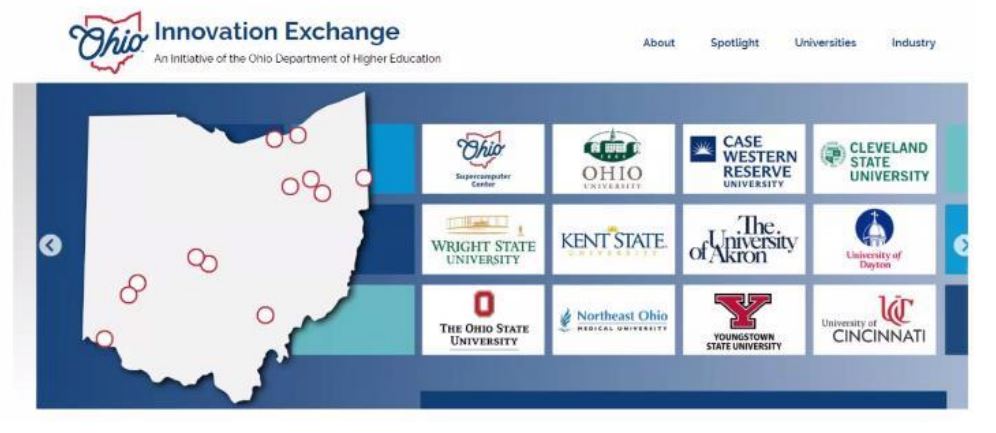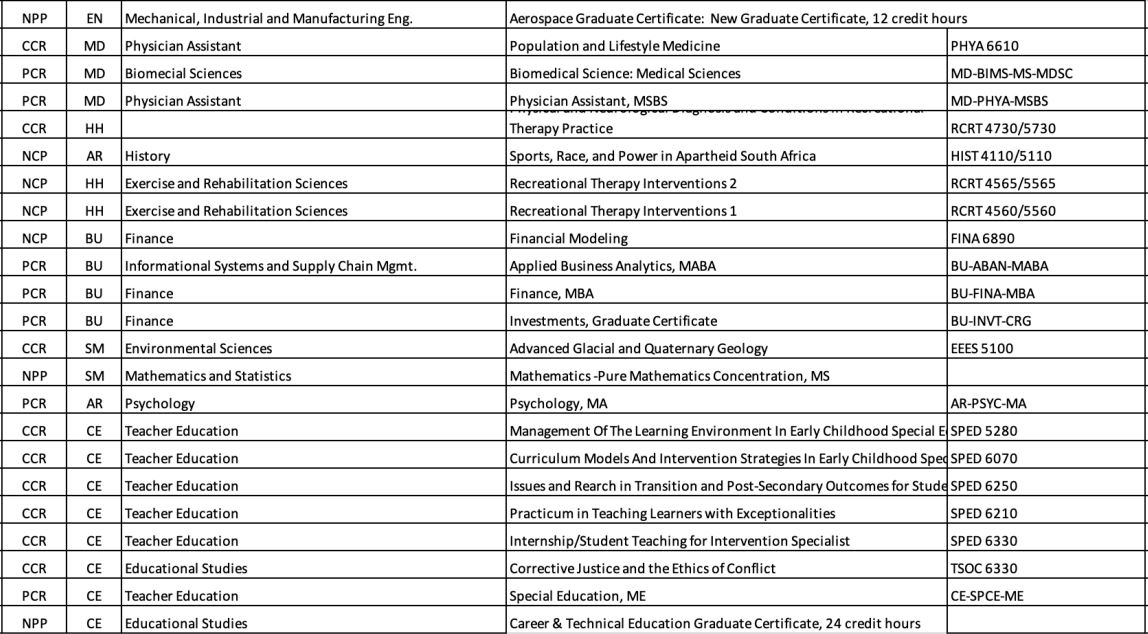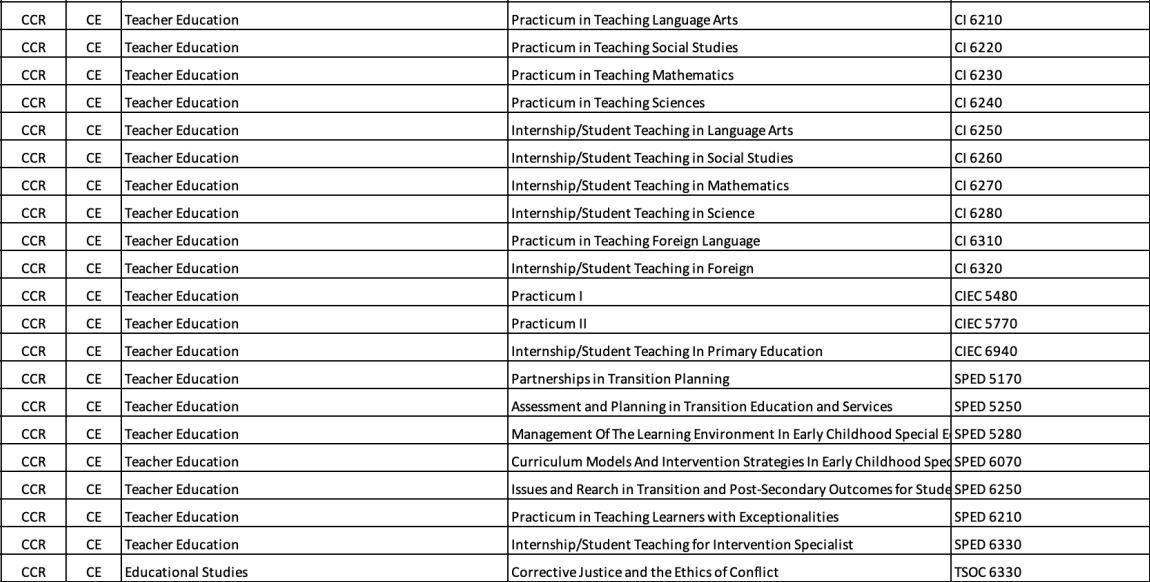Graduate Council Minutes
March 19, 2024
Present: Gary Insch (for Marcelo Alvarado-Vargas), Brian Ashburner, Sharon Barnes, Qian Chen,
Mai Dao, Jim Ferris, Timothy Fisher,
Bashar Gammoh, David Giovannucci, Dan Hammel, Noela Haughton, Andrea
Kalinoski, Kristen Keith, John Laux,
Patrick Lawrence, Bindu Menon, Ling Na, Nagalakshmi Nadiminty,
Megan Petra, Patricia Relue, Barbara Saltzman,
Youssef Sari, Connie Schall, Joseph Schmidt, Rebecca Schneider,
Zahoor Shah, Hossein Sojoudi, Kuo-hui Su, Jami Taylor,
Varun Vaiyda, Jerry Van Hoy, Eileen Walsh, Kandace Williams.
Absent: Larissa Barclay, Jennifer DeVries, Ahmad Javaid, Marcella Kehus, Maha Zeidan (GSA).
Excused:
Guests: COGS - Teri Green, Tara Hanna.
Call to Order, Roll Call, and Approval of Minutes
The meeting was called to order and roll called.
Executive Reports
Report of the Executive Committee of the Graduate Council
On behalf of Graduate Council, Chair, Dr. Patrick Lawrence reported:
- GCEC meeting March 12, 2024
- Set agenda for GC meeting of March 19, 2024 and remainder meetings and aligning presentations. Following today’s meeting, three meetings remain for AY 2023-2024.
- Discussion about budget planning, however, we have not heard much for FY 25. As updates are available, GCEC will discuss, particularly regarding graduate assistantships. GC Chair Lawrence and Vice Chair Saltzman meet with Provost Molitor next week and hope to obtain a timeline.
Report of the Vice Provost for Graduate Affairs
Dr. Dan Hammel, Interim Vice Provost for Academic Affairs provided the following updates:
- 3rd Party Evaluation of Foreign Transcripts
Dr. Hammel discussed recently with the graduate Associate Deans consideration for moving toward requiring 3rd party foreign transcript evaluation credential. Last year, Graduate Admissions received ~8,000 applications last year (exclusive of MD, JD, and Pharmacy) of which 6,000 were international. While some can be processed quickly when we are familiar with the institutions and their transcripts, others, not so much, which greatly slow processing. We may be able to make some exceptions by institution.
Benefits:- Data
Will be better able to pull data with standardized transcript information that we need to report to Institutional Research and accrediting agencies and others such U.S. News and World Report. - Fraud Reduction
Third party credential evaluators are accredited. - Students apply to multiple universities
This service is a cost to the applicants, ~$150-$190. Applicants are generally providing the same evaluation to other universities they are also applying to, substantial discount. Most universities accept from multiple services. Student only pays discount for multiple institutions. About 15% of international applicants already provide this, so they are familiar with doing so. - Peer Institutions in Ohio
More than 50% of our Ohio peer institutions utilize, including Cincinnati, Cleveland and Akron. This may result in a decline in applications, those who are not very serious/intent to enroll or with sufficient funding, however, it should not affect the numbers matriculating.
- Data
Discussion:
Dr. Sojoudi inquired the third party review can be requested of applicants, contingent
following admission, so they are spending money on something that is more likely going
to lead them to coming here.
Dr. Hammel indicated this can be discussed, but is likely to cause a bottleneck in review. The real benefit with reviewed/standardized transcripts is being able to move these applications through the system much more quickly. An option could be that programs could agree to cover the cost if the student attends.
Ms. Tara Hanna agreed that the benefit is at the front add. She noted that many applicants apply to multiple schools which require the evaluated transcript. So, they are already sending in evaluations with the unofficial transcripts. It would not cost them any more to add UToledo graduate admissions the list of schools to send to. We would receive the transcript evaluation directly into their application file in Slate. It is a seamless electronic process. This would also save time on the back end by not needing to place a hold on the student’s account delaying their registration, because they need to provide transcripts.
Dr. Hammel added that it may be possible to identify a flexible list of institutions. It is a change but likely to be useful and efficient and is interested in receiving input.
- Grade Extensions
We are in the process of changing the way that we handle incomplete grade extensions by allowing two semesters, not including summer to complete. Presently, an incomplete grade assigned at the end of fall semester would require the student complete by the end of spring semester, otherwise it would default to a grade.
Presently, a one-semester extension may be requested and granted (not including summer). This change will better align our procedures. Note, two extensions are permitted at the undergraduate level. Since a master’s degree is shorter, it does not make sense to extend beyond two semesters. - Grading Policy
A new policy is forthcoming that will formalize procedures with a policy that is already in the College of Graduate Studies Handbook. - CCGS Meeting March 22, 2024 (in person in Columbus, OH)
Discussion item at the State level- 3 + 3 degree health science doctorates, such as Occupational Therapy (3 years undergraduate and 3 years graduate) with students earning an Occupational Therapy Doctorate. Input may be provided to Dr. Hammel so that in turn he can share with CCGS.
- Suspension of Admissions
CCGS form required. Suspends admission for 5 years with opportunity to reinstate as needed. Please submit by April 10, 2024, to get them uploaded and for catalog updates.
Discussion:
Chair Lawrence inquired about further directives regarding the 15 programs or so identified
in January 2024 for further exploration by May 1, 2024. Whether there will be a formal
process (questionnaire/information/format) in which information is collected and disseminated,
from the programs to academic college deans and to COGS or the Provost’s Office.
Dr. Hammel replied that he has not heard any new information but can check with the Provost who would likely provide the information to the Deans. The process would likely go through the Provost. The process has moved rapidly. A lot was cleaning up program that didn’t have many or any students but other programs in the same area did and some program closures with no equivalence. This will be explained clearly at CCGS.
Ms. Tara Hanna added that when graduate admissions receives requests to close application access, if inactivated in CIM, we will follow that directive. We received a request today; however, the program is active in CIM.
Dr. Hammel direct requests to Graduate Admissions is not the correct process. The process is that suspensions of admissions or deactivation is that it must be submitted in CIM and notification goes to everyone in the chain including the GC Chair and COGS. At which point, it does not go any further until the appropriate CCGS are completed and submitted as required by the State.
Dr. Eileen Walsh sought clarification on allowing teach out for current students in a program to occur for a program with discontinued admissions.
Dr. Hammel responded that in most cases it is up to individual programs to ensure that the necessary courses are available. There needs to be an assurance on the form that we will teach out, but the program ensures the courses are available. Because there are courses being removed from the catalog that have not been taught in many years, you will want to make sure that courses needed for teach out are available.
Chair Lawrence added that the State form Dr. Hammel referenced for program deactivation is completed by the program and requires the teach out plan, number students remaining, and any issues or challenges with that might come up in terms of teaching out. So that all has to be dictated by the program. That is not in the CIM process, but in the State requirement.
Report of the Vice President for Research
Interim Vice President for Research, Dr. Connie Schall, provided the following report
with updates from the Office of Research and Sponsored Programs.
Connie Schall reported:
- Research Mixer – April 19, 2024, 4-6 pm, Phoenicia Restaurant, Main Campus
https://www.utoledo.edu/research/rsp/researchmixers.html
Nice networking opportunity across departments and colleges. The April 19th mixer will focus on staff who are assisting (pre- or post-award) in reporting in regard to sponsored projects. Researchers are asked to share with staff who assist with proposals in order to strengthen networking connections for individuals in these roles. Light food and beverages will be served with a cash bar. - Ohio Innovation Exchange
https://www.ohioinnovationexchange.org/
Primary purpose of this platform to connect our research to potential commercial and academic partners for sponsored projects and to serve as a connection point for expertise to a wider community. The exchange is focused for industry/university collaboration. UToledo will be included this fall semester. Cindy Miller, Senior Director of Corporate and Foundation Engagement from the UToledo Foundation, will be championing this joint effort between University Libraries, Information Technology, Research, and Institutional Research.
Snapshot of participating universities. Our goal is to have UToledo included in the Innovation Exchange fall semester 2024.
Publishers and NSF and NIH request a persistent digital identifier. ORCID can play this role at no cost for our faculty. This is the link that will flag some of the expertise. This is a work in progress that is not a presently a Banner field set up for ORCID IDs, but discussions with IT are necessary. Perhaps a Banner self-service for faculty to input ID and potential to link the IDs to InfoEd. Questions about setting up an ORCID account, there are some library guides in addition to website. Summer is a good time to set up if not already in place.
Report of the Graduate Student Association
GSA President, Maha Zeidan, was unable to attend today’s meeting, thus, Dr. Hammel
reminded Council of the GSA’s upcoming Midwest Graduate Research Symposium on Saturday,
April 6th, 2024, from 8:30 a.m. - 2:00 p.m. via WebEx. Requests for faculty judges
were sent via email on March 18th and 19th. Visit https://www.utoledo.edu/graduate/success-center/midwest-grad-research-symposium.html to submit your name to volunteer.
Information and Discussion Items
None.
Standing Committee Reports
Report of the Curriculum Committee
Mai Dao, Graduate Council Curriculum Committee (GCCC) member, presented the list of
proposals already provided to Council members prior.
The proposals listed below were reviewed by the members of the GCCC with recommendations to approve.
PCR = Program Change Revision
CCR = Course Change Revision
NCP = New Course Proposal
PCR = Program Change Revision
PIP = Program Inactivation Proposal
The proposals listed below were approved by the members of the GCCC
Report of the Membership Committee
None.
Old Business
None.
New Business
Call for Nominations AY2024-25 Graduate Council Executive Committee Elections to be
held at first CG 24-25 meeting
on April 30, 2024
Vice Chair, Dr. Barbara Saltzman, shared information regarding vacant seats and new
members who have been elected to Council for 2024-2025. GCEC will be looking for a
vice chair and executive 3 Executive Committee members. Let us know if you are looking
to take a greater role in leadership.
Dr. Jami Taylor questioned the impact of elections on the merging of the colleges of Education and Arts and Letters. Vice Chair Saltzman replied that is more likely to be effective in 2025.
Adjournment
There being no further business, the Council adjourned at 1:23 pm.








